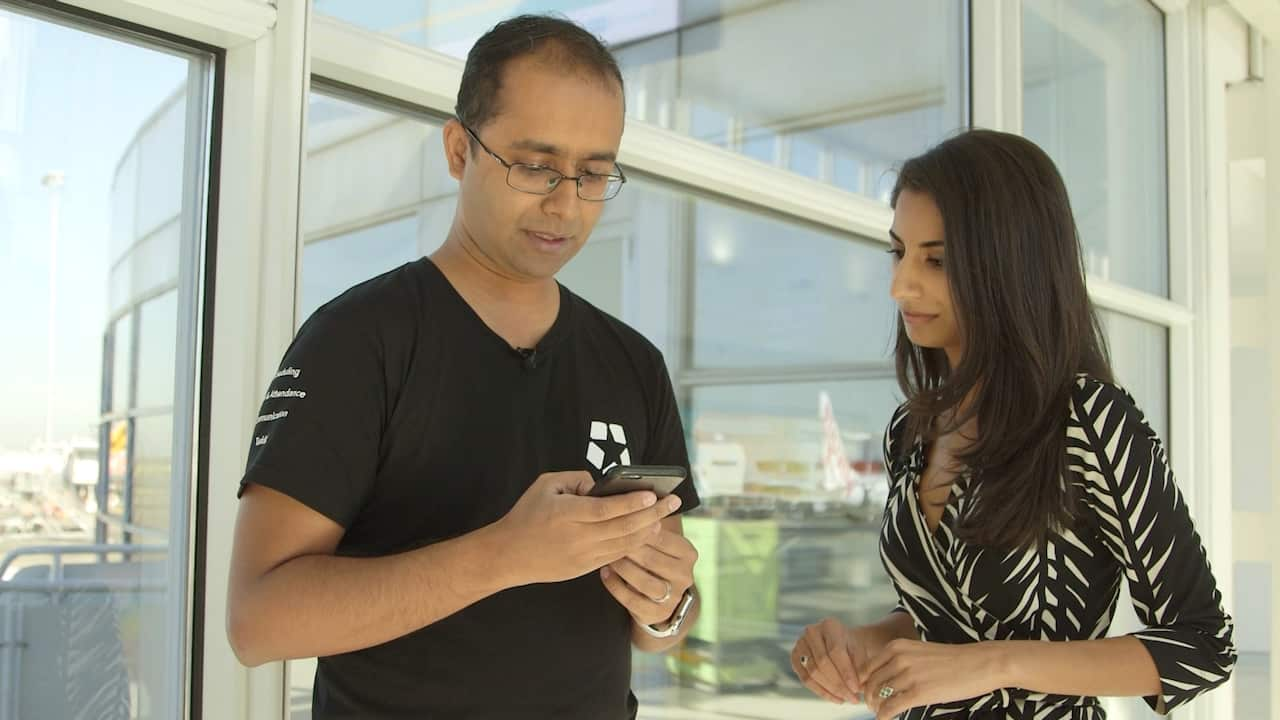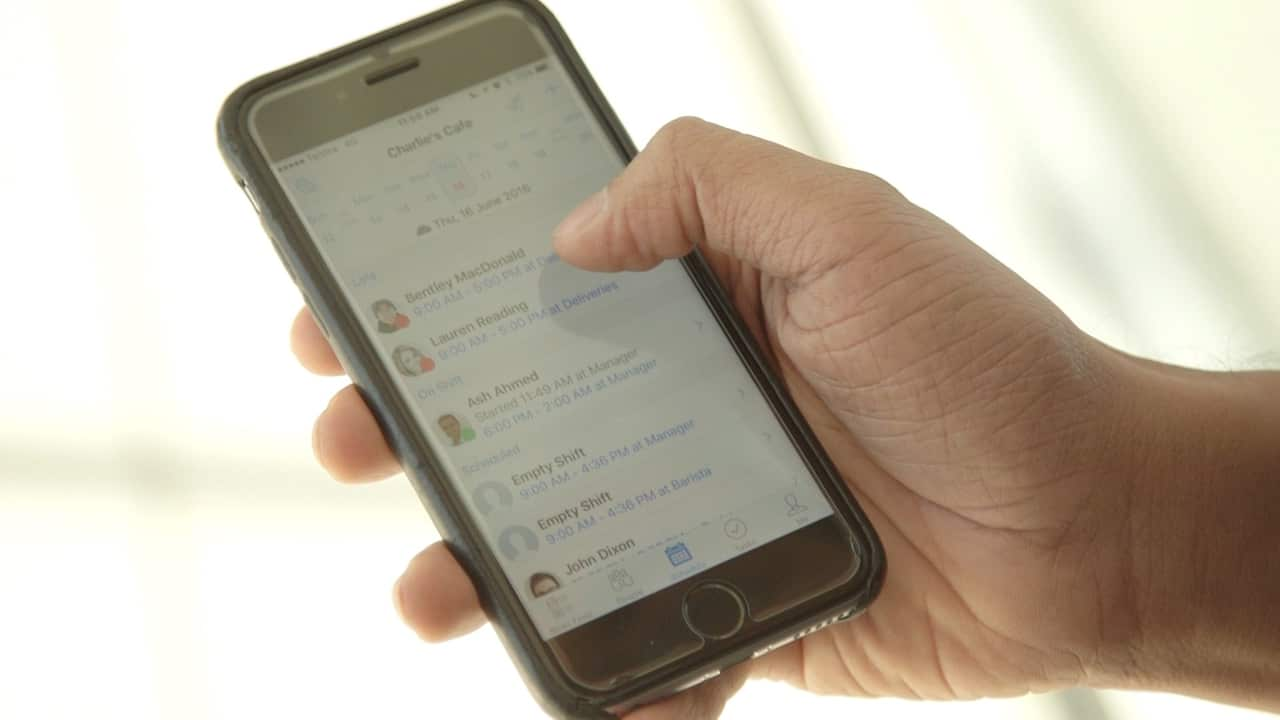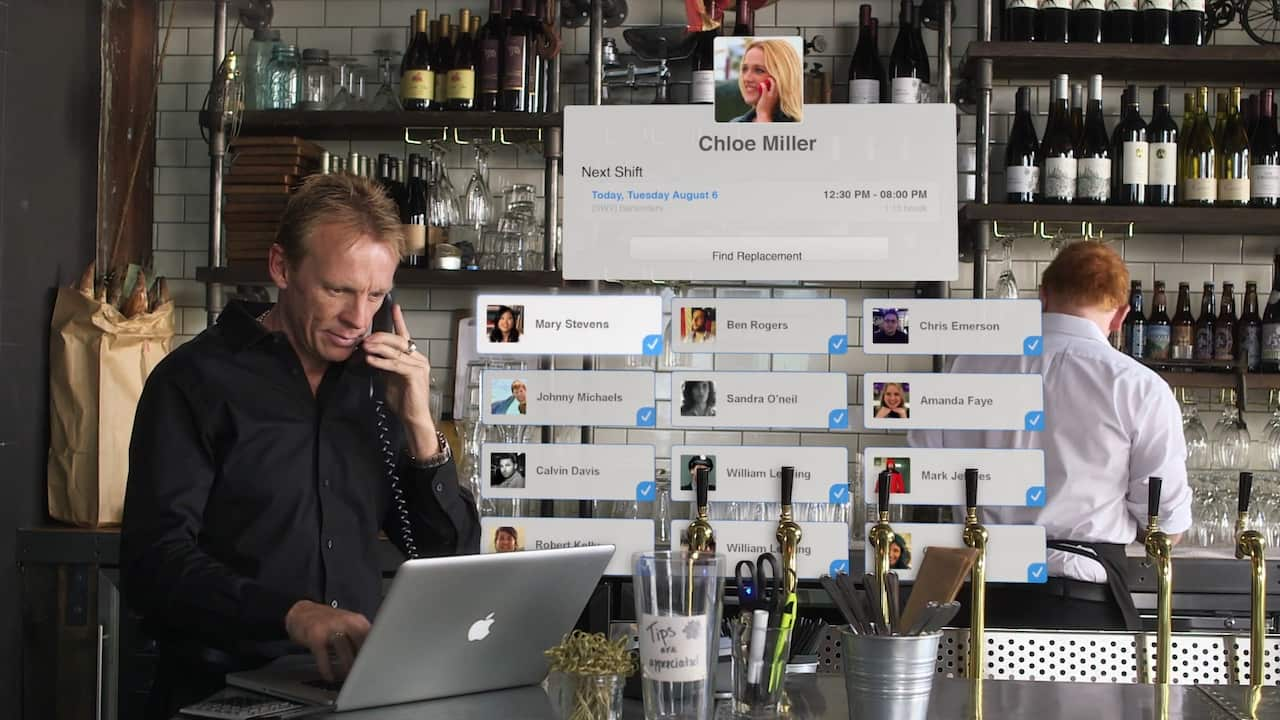In 2003, software engineer Ashik Ahmed joined a company called Aerocare, which specialised in aviation ground handling services - that's anything from cabin cleaning, to baggage handling, to passenger services.
He found CEO Steve Shelley was spending a huge amount of his time worrying about coordinating staff, rather than focusing on the core business.
"He'd get a text at six am, an employee saying hey, I can't come in. He used to have three options at that point: number one, let that position go unfulfilled, which will cause disruption to customer. Option number two: he stops doing what he's doing and jump into fill that employee's role. And option three he's going to jump on phone and call every other employee hoping someone’s going to say yes."
Ashik felt there had to be an easier, less time-consuming way.

So he created a program to streamline the process, eventually naming it ‘Deputy’, because it functioned as the CEO’s second-in-command.
"It was hugely successful. When it took ten years to grow the business from two people to 200, in the next three years we were able to grow the business from 200 to nearly 1400 people. We realised we had something in our hands that we could take to the rest of the world."
In 2008, Ashik and his former boss Steve Shelley launched Deputy as a separate company.
The software is accessible as an app, which Ashik says allows owners to run their businesses straight from their phones.

“Deputy as an app actually does about five separate things. We do employee scheduling, time and attendance, communication - you can think of it like an internal Facebook for your employees – there’s tasking, and we also do performance management. So basically, other than recruitment or payroll, everything can be done” on the app.
The company now has 25,000 clients in 73 countries, with an annual turnover of more than $10 million.
Their clients are as varied as Aesop, Queensland Rail, and even NASA, which uses Deputy’s software in some of its visitor centres.
"Deputy as a product solves a pain-point for the hourly paid market, not necessarily the salary paid market. And in many first world countries about 60 per cent of the population is hourly paid. So that may equate to 3-4 million in Australia, but that number is about 60 or 70 million in the US. So obviously, with the vision of where we can take Deputy, that's our biggest market opportunity," Ashik says.

For that reason, Deputy recently launched its US headquarters in Atlanta.
And next, Ashik says the company is looking to Asia as another region for growth.
"With the manufacturing that happens in China, with the outsourcing in India, the shift work, the hourly paid market is definitely big there."
It’s a region he’s familiar with, having immigrated from Bangladesh with his family as a teenager. While he struggled to learn English and adapt to life in Australia early on, he’s grateful for the opportunities he’s been given.
"I come from country of 160, 170 million people - a third world country. Not many people would get an opportunity like I have. So I definitely wanted to make sure I maximised my opportunities, working hard, studying hard."
Sharing business secrets of inspiring entrepreneurs & tips on starting up in Australia's diverse small business sector. Read more about Small Business Secrets
Have a story or comment? Contact Us


